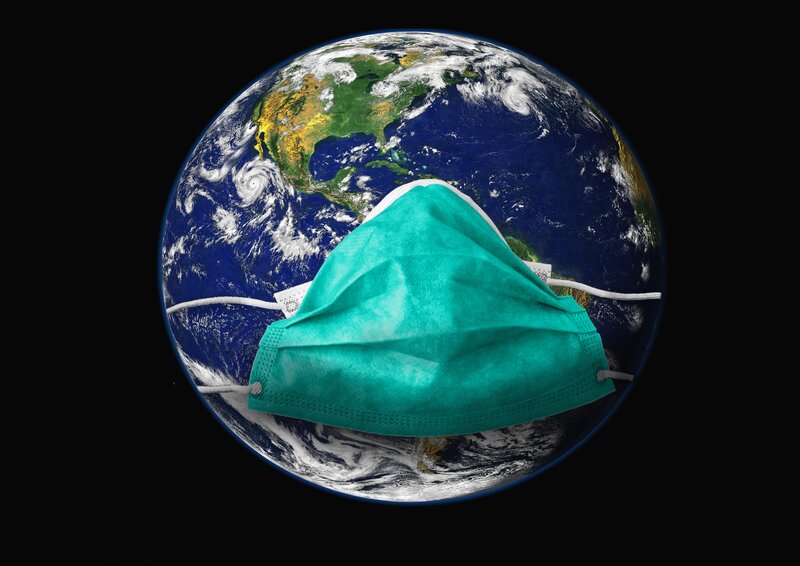If you are like me, it's been hard to think about much else other than COVID-19, the novel coronavirus that is now a pandemic. It should be of particular interest to people with metabolic syndrome, since by definition, they have pre-conditions that put them in a higher risk category for increased illness and death from the disease. What can we do to protect ourselves, and what can we do if we get the disease? There are reasons to be optimistic!
Are you in a High-Risk Group?
There are some conditions that put you at greater risk of complications from COVID-19:
What can you do to Prevent Getting COVID-19?
The good news is that there is a lot that we can do, and in fact the most important are really "easy":
You also want to keep your immune system as healthy as possible:
How do you know if you have COVID-19?
Testing may not be available, but watch for the following common symptoms of COVID-19:
What do you do if you get Sick?
As scary as it is and as uncomfortable as you might be, remember that the vast majority of people with COVID-19 have only mild to moderate symptoms! Think positively that you will be among them.
Be well everyone! We are all in this together.
Are you in a High-Risk Group?
There are some conditions that put you at greater risk of complications from COVID-19:
- Age. Though people of all ages can contract the disease, older people have a higher-risk of complications
- BMI >40
- Comorbidities such as:
- Autoimmune diseases (or drugs for immunosuppression)
- Diabetes
- Heart disease (including hypertension)
- Chronic lung disease (e.g., COPD, asthma)
- Smoking including vaping
- Kidney, liver, or neuro disorders
- Sarcopenia (muscle wasting/weakness)
What can you do to Prevent Getting COVID-19?
The good news is that there is a lot that we can do, and in fact the most important are really "easy":
- Wash your hands. I know you've heard this, but you need to take it almost to the point of ridiculous! Touch something outside your house? Wash your hands. Don't have access to soap and water? Use an alcohol-based hand rub (if you can't find any, you can make your own).
- Keep your hands off your face. The virus enters the body via the mouth, nose, or eyes. If you touch your face and have not washed/rubbed your hands recently, wash or put a rub on your face where you touched. Always be aware of where your hands are. The American Academy of Ophthalmology recommends wearing glasses instead of contact lenses because we touch our eyes more when we have contacts in, and touching our eyes is one way the virus is spread. Don't forget to wash/rub your glasses if you touch them with contaminated hands.
- Practice social distance. Stay home! Go out only for groceries/carry-out or medical need. It's healthy to get some fresh air and sunshine everyday, as long as you can maintain a distance of at least six feet between people at a minimum.
You also want to keep your immune system as healthy as possible:
- Get enough sleep
- Eat a healthy diet
- Manage stress with mindfulness
- Strengthen your muscles and get some exercise
How do you know if you have COVID-19?
Testing may not be available, but watch for the following common symptoms of COVID-19:
- Cough
- Fever
- Chills
- Fatigue
- Body aches
- Headache
- Sore throat
- Nausea, vomiting, and/or diarrhea
- Loss of taste and appetite
- Red eye(s)
- Feeling of heaviness in the chest
- Mild shortness of breath
- Extreme shortness of breath
- Pain or pressure in chest (remains after coughing)
- Unable to keep down food or drink
- Lightheadedness to the point of fainting
- Slurred speech; not thinking properly
What do you do if you get Sick?
As scary as it is and as uncomfortable as you might be, remember that the vast majority of people with COVID-19 have only mild to moderate symptoms! Think positively that you will be among them.
- Keep hydrated. A fever increases your fluid needs, and it can be difficult to keep up if you are nauseated or otherwise don't feel like drinking. It is essential though, so be persistent, even if it means mostly ice chips. Eat healthy food as best you can.
- Take acetaminophen (e.g., Tylenol) for fever and body aches if you need to, but do not take ibuprofen (e.g., Motrin).
- Get plenty of sleep
- It's a good idea to have the following items in your tool chest so that you can objectively monitor your progress:
- Thermometer
- Automatic blood pressure machine
- Pulse oximeter. This device uses light from a clip-on device to measure the percent of oxygen saturation in red blood cells (SaO2)
- You should be isolated from the rest of the family if possible.
Be well everyone! We are all in this together.

 RSS Feed
RSS Feed